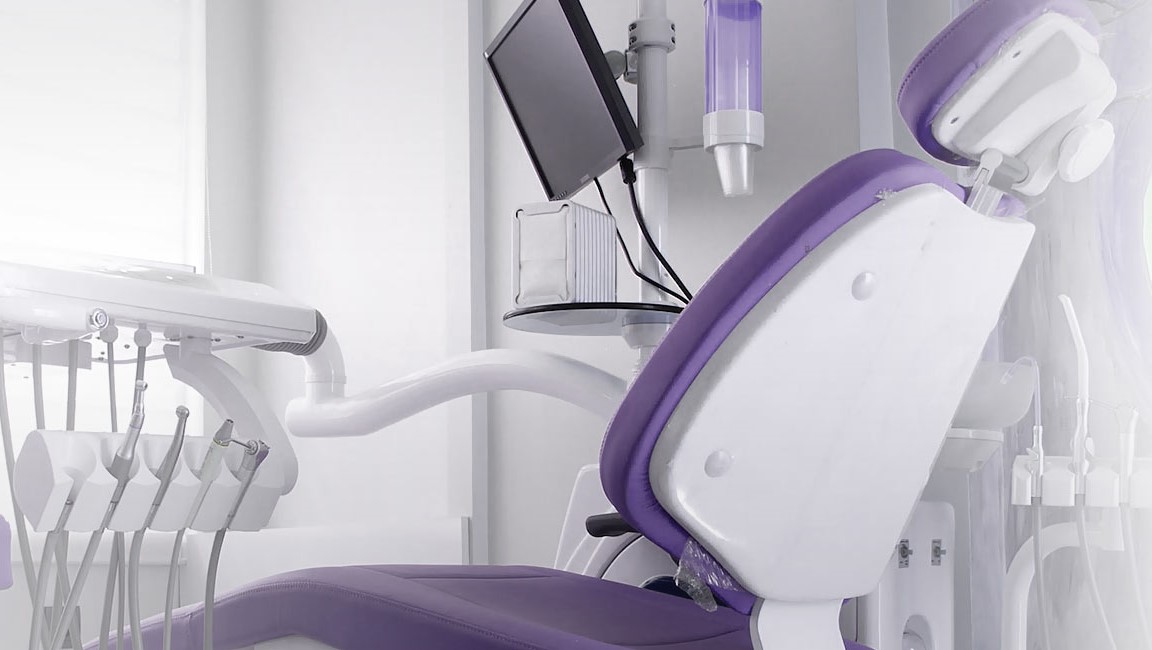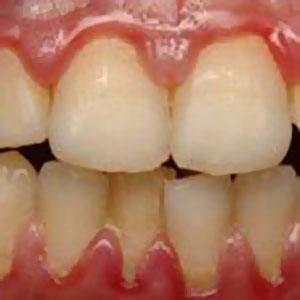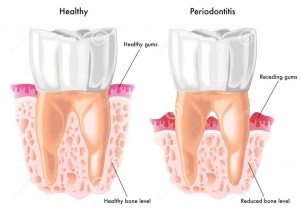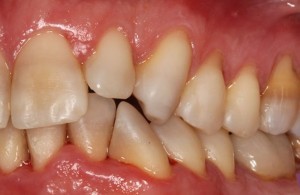- Address
- 26 North Park Boulevard
- Glen Ellyn, IL 60137
- Get Directions
- Phone
- (630) 858-8800
- SmileGlenEllyn@gmail.com

If your gums bleed when you brush or floss, you may be among the 60% of American adults who have periodontal gum disease. Many people dismiss bleeding gums as normal, but this bacterial infection of the gums, supporting tissues, and bone around your teeth requires professional attention to prevent serious complications. At Smile Glen Ellyn, Dr. Gibbs and our experienced team specialize in diagnosing and treating all stages of gum disease, from mild gingivitis to advanced periodontitis, serving patients throughout Glen Ellyn, Wheaton, Lombard, and all of DuPage County.
Early intervention is key to preserving your natural teeth and overall health. Our personalized treatment approach focuses not only on eliminating the bacterial infection but also on educating you about proper home care and addressing contributing factors to prevent recurrence. Don’t let gum disease silently destroy your oral health – professional treatment can save your teeth and protect your overall well-being.
If you’re searching for a dentist in Glen Ellyn who can treat gum disease, you’ve come to the right place! Call our dental practice near you at (630) 858-8800 to schedule your dental appointment. We proudly serve Glen Ellyn, Wheaton, Lombard, Glendale Heights, Carol Stream, and the surrounding DuPage County areas.
If your hands bled when you washed them, you would be concerned—yet, many people think it’s normal if their gums bleed when they brush or floss. Periodontal gum disease is one of the most common diseases of mankind. Don’t be surprised if you’re told you have periodontal disease—about 60% of American adults do! Gum disease is a bacterial infection of the gums, the supporting tissues of the teeth, and even the bone around the teeth.
Gum disease is the leading cause of tooth loss in the United States.
When you choose Smile Glen Ellyn for periodontal treatment, you’re working with Dr. Gibbs and a team that understands gum disease is more than just a dental problem – it’s a health issue that affects your entire well-being. Our comprehensive approach combines advanced diagnostic techniques with personalized treatment plans tailored to your specific stage of gum disease and individual risk factors. We don’t just treat the symptoms; we address the underlying causes and work with you to develop sustainable home care routines that prevent recurrence.
Our experienced hygienists are specially trained in periodontal therapy and provide gentle, thorough care using the latest techniques and technology. We also recognize that every patient’s situation is unique, whether dealing with genetic predisposition, medical conditions, or lifestyle factors that contribute to gum disease. That’s why we take time to educate you about your condition, involve you in treatment decisions, and provide ongoing support to help you maintain optimal gum health for life.

Although there are other less common types of gum disease often dismissed by the patient until irreversible damage is evident.
Gingivitis is extremely common affecting about 2/3rd of adults in varying amounts. It is the inflammation of the superficial areas of the gums with the accumulation of dental plaque and the contributory factors to gum disease previously listed. Using proper brushing and flossing and the reduction of the contributing factors listed above, gingivitis can usually be controlled. The daily elimination of dental plaque, elimination of tobacco usage, and correction of faulty dental restorations are the most important controlling factors. Periodic dental cleaning visits on a regular basis can eliminate destructive dental calculus (calcified plaque).

If left uncontrolled, gingivitis often leads into a much more destructive form of gum disease known as periodontitis. With this form of gum periodontal disease the infection progresses into the destruction of the supporting bone supporting the roots of the teeth. Intervention of knowledgeable dental personnel is absolutely necessary to prevent the disease from progressing into tooth loss.
Please review the adjoining diagram. We often tell patients to think of the tooth being similar to a fingernail—there is naturally a “cleft” like structure around the tooth. In dentistry we call it a “pocket.” Bacteria can collect in the deeper pocket area and the progressive destruction of the tooth support and bone loss can ensue.
With periodontitis daily home care is necessary along with the elimination of contributing factors and the removal of dental calculus (“deep cleaning” or scaling). Once a diagnosis of periodontitis is made intervention is needed and periodic dental hygiene visits are required every 3 month as the bacteria typically need 10 to 14 weeks to cause additional bone loss.

Typical gum disease symptoms include swollen, red, and tender gums. Factors to note:

Although periodontal disease is common, it is usually preventable. The cause of periodontal issues is usually poor or faulty oral hygiene. For instance, many people may brush regularly but not use dental floss, allowing gum disease to start between the teeth. Bacterial deposits build on the teeth and gums forming a film known as dental plaque. The bacterial plaque over time causes gum inflammation—over time the effects of gum disease can lead to tooth loss.
Over time the dental plaque may absorb chemicals from the saliva and can calcify forming a material known as dental calculus that CANNOT be removed with patient tooth brushing. A trained dental
hygienist must carefully remove dental calculus using proper instruments.
There are many contributing factors to periodontal gum disease such as:
Obviously— gum disease is a multi-faceted disease with many factors.—If you suspect gum disease consult with a knowledgeable dentist who can help diagnose and control the disease before it advances!
Also see our sections on:
Gingivitis (early gum disease) can be completely reversed with proper treatment and home care. Advanced periodontitis cannot be cured but can be successfully controlled with professional treatment and maintenance to prevent further damage and tooth loss.
Patients with a history of gum disease typically need professional cleanings every three to four months instead of the standard six months. This frequency prevents bacterial buildup that can cause additional bone loss and helps maintain gum health long-term.
Modern periodontal treatment is much more comfortable than in the past. We use local anesthesia during deep cleaning procedures, and most patients experience only mild discomfort afterward. We also offer sedation options for anxious patients.
Most dental insurance plans cover periodontal treatment as it’s considered medically necessary. Coverage varies by plan, but we’ll work with your insurance to maximize benefits and provide treatment estimates before beginning care.
Bleeding gums aren’t normal, and waiting won’t make gum disease go away. Dr. Gibbs and our skilled hygienists at Smile Glen Ellyn are experts in diagnosing and treating periodontal disease at every stage. From early gingivitis to advanced periodontitis, we have the experience and advanced treatments to restore your gum health and save your natural teeth. Early treatment is always more comfortable and affordable than addressing advanced gum disease later.
Call our dental practice near you at (630) 858-8800 today to schedule your comprehensive periodontal evaluation! We proudly serve patients throughout Glen Ellyn, Wheaton, Lombard, Carol Stream, Bloomingdale, Winfield, and all of DuPage County with gum disease treatment. Take control of your oral health now—your gums and your overall health will thank you.
We’ve filled our website with information about our doctors, our team, and our services including family dentistry we offer, location, maps and business hours. Please feel free to take a look around to learn more about what we do and how we can help keep your smile healthy and stunning for a lifetime. We want you to feel confident that when you choose us, you’re choosing to receive the best dental care available.